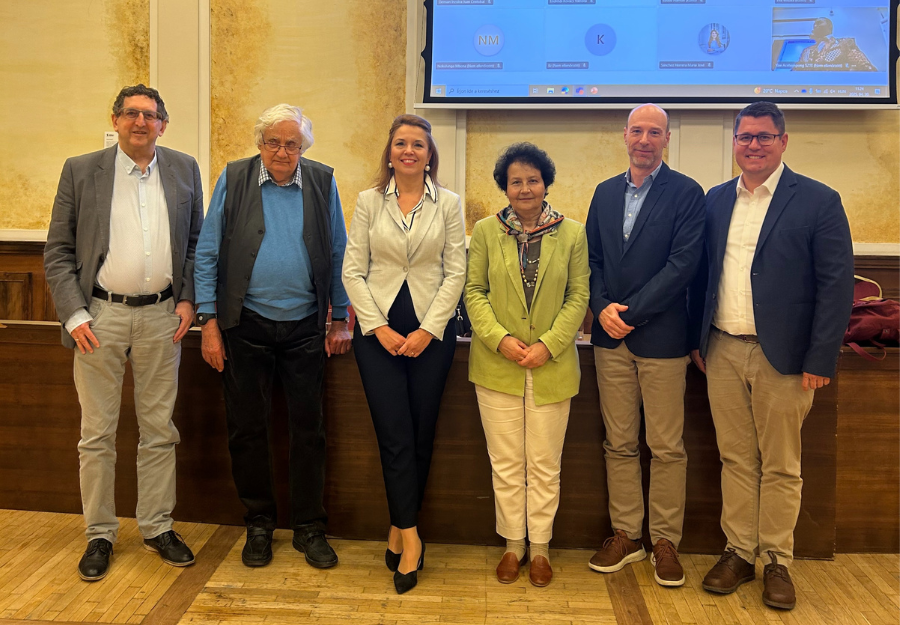What significance does an academic publication about regional integration hold these days? – Book launch at the Corvinus Univers

Tibor Palánkai, full member of the Hungarian Academy of Sciences, former rector and current professor emeritus of the Corvinus University of Budapest, also attended the event. His academic work was a great influence on the book, which was printed by the acclaimed British academic publisher, Routledge.
The book launch was organised by the Department of World Economy of the Corvinus University of Budapest, the International and Development Studies Scientific Committee of Division IX of the Hungarian Academy of Sciences in cooperation with the Hungarian Diplomatic Academy. The theme for the first part of the schedule was the importance of regional integration. Alongside Tibor Palánkai, the attendees of the discussion were István Benczes, professor at the Department of World Economy of the Corvinus University of Budapest, László Csaba, full member of the Hungarian Academy of Sciences, Boglárka Koller, professor of Ludovika University, senior research fellow of the Centre for Economic and Regional Studies, and Beáta Farkas, professor at the Institute of International Economics and Business of the University of Szeged.
After introducing the members of the panel discussion, it was stated that the book compares over a dozen forms of regional integration in a specifically exoteric way, using modern economic methodology. In the course of the comparative analysis, the integrational attempts of Africa, Asia, the European Union and the Americas were investigated. László Csaba expressed his appreciation for the academic work, especially for the reason that the book was written in Hungary, a state which was locked off from the mainstream of economic public discourse for decades. He trusts that the publication will be of importance in the next ten to fifteen years, next to other publications of the same topic that were written for tertiary educational use.
As for the content of the book, the problem of advocacy of countries which are smaller, less abundant in resources or lesser in power was elaborated upon, together with the importance of defence policy and regional cooperation in regard to the transformation of the world order.
The key concepts in connection to the aforementioned topics mentioned by the members were multilateralism and transactionalism.
The second part of the event was titled Composite index and case studies, in which the subject matter of the book was analysed. The partakers of the discussion were Sándor Gyula Nagy, editor of the publication and professor at the Department of World Economy, Oleg Tankovsky, assistant professor at Ludovika University of Public Service and Anikó Magasházi, research fellow of the Institute of Advanced Studies Kőszeg. Nwabisa Florence Ndzama, an expert of the South African Reserve Bank, joined them online.
Sándor Gyula Nagy and Oleg Tankovsky presented the details of editing and collection of data for the book, after which Anikó Magasházi reviewed the economic history and present state of the Association of Southeast Asian Nations and its members. Following that, Sándor Gyula Nagy examined the economic performance of the members of the European Union, and lastly, Nwabisa Florence Ndzama gave an account of the past, present and future of the Southern African Customs Union.